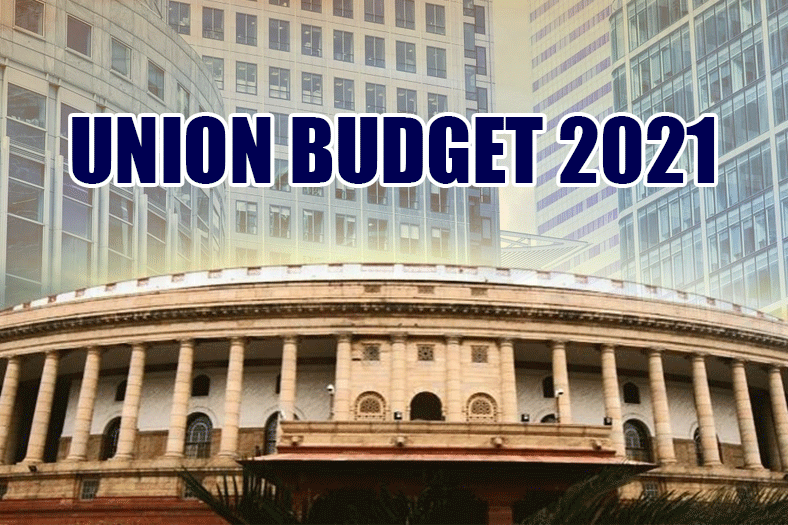
The Union Budget 2021 focuses on spending big on infrastructure and construction sector.
It’s that the time of the year again! The Finance Minister Nirmala Sitharaman has presented the Union Budget 2021 and it is aimed at the revival and reform of the Indian economy. India, like the rest of the world, was ravaged by the Covid-19 pandemic and as a result of this; the economy and growth cutting across sectors took a big hit. The finance minister provided a major boost to construction and infrastructure in Union Budget 2021.
Nirmala Sitharaman in her budget speech focussed on six pillars for India’s growth, which includes Health and well-being, physical and financial capital and infrastructure, inclusive development for aspirational India reinvigorating human capital, innovation and R&D, minimum government and maximum governance. Apart from this, the ‘Atmanirbhar Bharat’ mission, which was launched in 2020, will continue to make an impact.
The Union minister made a concentrated effort towards spending on infrastructure and construction projects. The infra and construction sector in India has grown leaps and bounds over the last 20-30 years and has played a huge role in India’s development story.
Here are the key takeaways for the construction and infrastructure sector:
- The National Infrastructure Pipeline has been expanded to 7,400 projects. Further, projects worth Rs 1.1 lakh crore have been completed under the National Infra Pipeline. The govt will also introduce a bill to set up DFI providing Rs 20,000 crore to launch the National Asset Monetisation Pipeline to fund new infra projects.
- Highway works in various states including 3,500 km corridor in Tamil Nadu, 1,100 km in Kerala at an investment of Rs 65,000 crore, 675 km in West Bengal for Rs 95,000 crore and 1,300 km in Assam in the next three years.
- An outlay of Rs 1.18 lakh crore for Ministry Of Road Transport and Highways.
- National Highway Authority of India (NHAI) to set up INVITs to attract global funds.
Paul Wallett, Regional Director for Trimble – Middle-East and India region, opined his views on the Union Budget 2021 and said, “Budget 2021 announcement is focused on the nation’s growth and brings a positive sentiment to the overall economy. The announcement of Increased capital expenditure, allocation of Rs 2,000 crore for DFI’s and push into asset recycling will put the Indian infrastructure industry in a route to recovery. We believe that the prioritization of government spending on infrastructure promises to be the much-needed push for economic revival.”
Vamsi Gaddam, Joint Managing Director, Visaka Industries Ltd, said, “Tax exemptions already exist for developers of affordable houses. Further interest deductions available from income tax on loans borrowed up to Rs 45 lakh on affordable houses. These benefits have been extended for one more year till March 2022. This augers well for the business and our building material products usage will definitely see an uptick.”
Surendra Hiranandani, Chairman and Managing Director, House of Hiranandani, gave a detailed explanation on the budget presented by Nirmala Sitharaman. Surendra said, “The union budget presented is visionary and has focused on the nation’s growth. With its focus on the agricultural and rural sectors, infrastructure, health, education, job creation, digital economy etc. It is a holistic budget that will have an overall positive impact on the economy. With the growth outlook looking promising and support in terms of government spending, we will witness noteworthy traction in the real estate sector too this year. The government has played a tough balancing act between providing demand impetus and keeping a watch on fiscal deficit. Though real estate has not got anything directly from this budget, there are announcements that will indirectly help the sector. Allotment of a massive capital expenditure corpus in order to enhance and support national highway projects, roads and other ancillary infrastructure show the continued commitment of the Government to strengthen connectivity across the country which in turn will largely improve real estate over the next few years.
While affordable housing continued to remain a priority area for the government with few additional reforms, the government could have given a further boost to real estate which fuels the Indian economy as it is the second-largest employer after agriculture and supports over 250-allied industries. There have been many pressing concerns in the real sector that have not been addressed such as easing liquidity, reduction in levies/taxes, tax deductions on home loans to give impetus to buyer sentiment, granting of industry status to the overall real estate sector and implementation of single window clearance amongst others.”
He further added, “Overall, while the social sector has received good support and is welcome, we are convinced that the government will do its best to get the economy to bounce back, and sustain long term growth of the real estate sector too with substantial measures in the near future. We also hope that there will be more announcements soon to enhance ease of doing business for the developers and are optimistic that with green shoots in the economy insight, the real estate sector is ready for explosive growth in the post-pandemic era.”
Kamlesh Patel, Chairman and Managing Director, Asian Granito India Ltd, also gave a vote of confidence to the budget and said, “It is a growth-oriented inclusive budget with focus on infrastructure, investment, MSME and health sector to revive growth on the fast track. The measures are expected to give the right momentum to the economy in the medium to long term. Tax reforms and tax simplification measures especially reducing the time-limit for reopening of assessment to three years are steps in the right direction. Higher allocation to infrastructure, an extension of the exemption for the purchase of affordable houses till March 2022 and tax exemption to rental housing projects will provide the necessary boost to the ceramic industry.”
Kaushal Agarwal, Chairman, The Guardians Real Estate Advisory, said, “It’s a pragmatic and forward-looking budget, at the same time. The estimated, gradual reduction in the fiscal deficit from 9.5% to under 4.5% by 2024-25 will help boost consumption in the economy. The government’s big bet on infrastructure is bound to pay off in the long-term & will also catapult desired growth for real estate & the economy. The NPA’s of PSU banks have seen an encouraging reduction from 8.96 to 6.8 trillion by end of Fiscal 2020. The setting up of ARC & AMC for banks troubled with bad loans and NPA’s alongside the further recapitalisation of Rs 20,000 crore will help improve the lending capacity of the banking and financial sector. The government’s decision to extend tax holiday for affordable housing projects by another year is a step in the right direction to realise the PM’s dream of ‘Housing For All by 2022.”
Ashok Mohanani, President – NAREDCO Maharashtra, gave his point of view on the budget and said, “The Government has put their best efforts to put the economy back on track after the adverse effects of Covid-19 pandemic that the entire country went through. It has focussed a lot on infrastructure in this budget. This will indirectly help boost the housing demand, especially in the Tier II & Tier III cities. The Government’s decision to further infuse Rs. 20000 crore for public sector banks will help address liquidity issues to a large extent. The proposal to extend the Rs 1.5 lakh benefit on interest paid on affordable housing loans by one year to March 31, 2022, is an exceptional move which will boost the affordable housing segment and help to achieve the Prime Minister’s vision of Housing for All. It will also ensure that more and more homebuyers get to avail of this benefit. The reduction in the tax burden on senior citizens above 75 years will give a push to the senior-living projects. Also, the Government’s continuous efforts to promote ease of doing business and digitization will help the real estate sector business in a long way going forward. As anticipated, it’s a very futuristic budget from the economy point of view.”
Udaya Bhaskar Rao Abburu, CEO & Managing Director, iRam Technologies, said, “We expected more from the Union budget 20-21. While the focus has been on infrastructure, FM has allocated Rs 93,400 crore for roads only, no allocation has been made for the development of Smart Cities. Though FM talked about double-digit growth of the manufacturing sector for India to become $5 Trillion economy, no roadmap has been laid out for the same. We also need more clarity on how Rs. 2217 Crores allocated for setting up 42 Urban centres to tackle pollution problem will be used. Change in definition of Small companies may benefit some Small-scale companies, provided more support for Small scale companies are announced”.
Rakesh Reddy, Director, Aparna Constructions & Estates, said, “In the aftermath of the COVID-19 pandemic, the Union Budget 2021 was highly anticipated to fuel economic revival. It was to be a balancing act between high expectations and minimal resources. The Budget focused on healthcare – to provide crucial COVID-19 rehabilitation – and infrastructure as key segments to aid in the revival. The infrastructure sector is a key driver of India’s economic growth and is the second-largest employer in India. The growth of the sector has a multiplier effect on the growth of the entire economy and must be bolstered.
Rapid development in infrastructure requires a strong inflow of capital. Debt financing of InvITs and REITs will be enabled by making a suitable amendment to attract more investment in the real estate and infrastructure sector. In a positive step for the affordable housing segment, the time period for taking loans in this segment will be extended by one year, until 31 March 2022, to avail additional tax benefits of Rs 1.5 lakh under section 80EEA of the Income Tax Act. The benefit is over and above the tax benefit of Rs 2 lakh on interest on Housing Loan available under section 24(B).”
He further added, “Although several proposals were announced for the benefit of taxpayers, there was no change in income tax slab rates. Disposable income is a substantial constraint on demand so personal tax relief must be addressed by revisiting the tax slabs and also increasing the deduction limit under Section 80C. Such benefits will provide crucial support to the real estate sector.
The Budget also proposed to provide GST relief by reducing inverted GST structures. There are hundreds of old exemptions in indirect taxes which must be addressed. This is a positive step that must be implemented immediately. Although the government continued to provide fiscal and policy support to the real estate sector, it is important for the government to lay the foundation which will provide a strong impetus for demand generation and growth in order to regain the pre-Covid momentum. Policies must be enacted that address raw material price escalations, input tax credits, and reduction in GST rates.”
The Union Budget 2021 comes at a time when the Indian economy is trying to reach the next level and break barriers. Indian PM Narendra Modi has always emphasised on ‘minimum government and maximum governance’ and the budget gives an outline on this agenda. The litmus test of this budget will be on executing all the plans and schemes and that can be judged only on the next Union Budget day i.e. February 1, 2022.
Cookie Consent
We use cookies to personalize your experience. By continuing to visit this website you agree to our Terms & Conditions, Privacy Policy and Cookie Policy.









